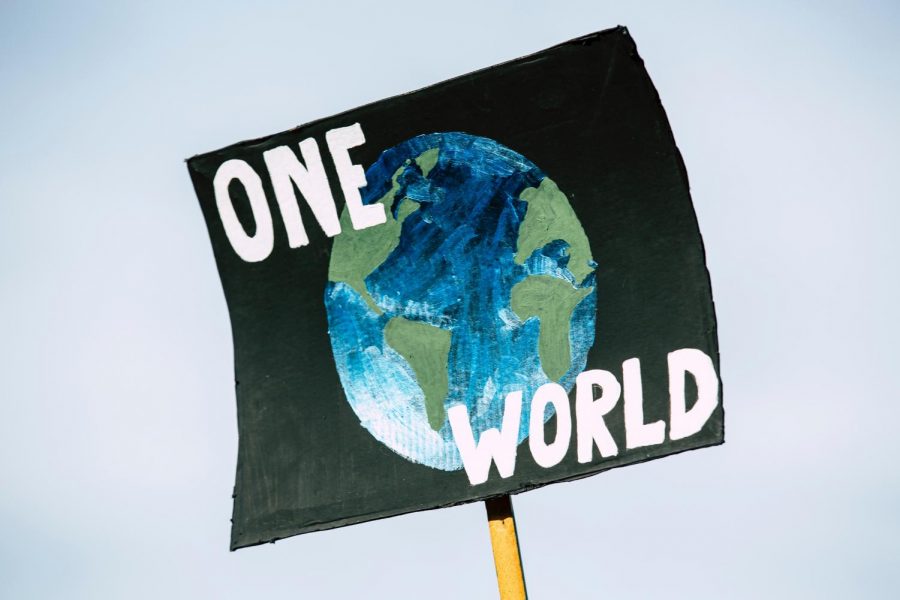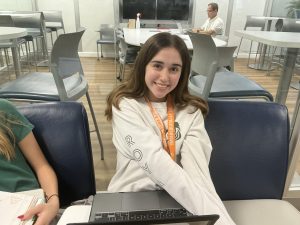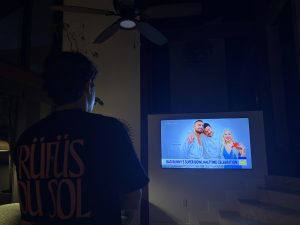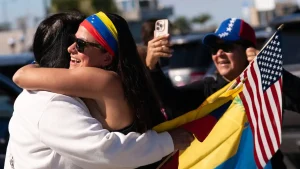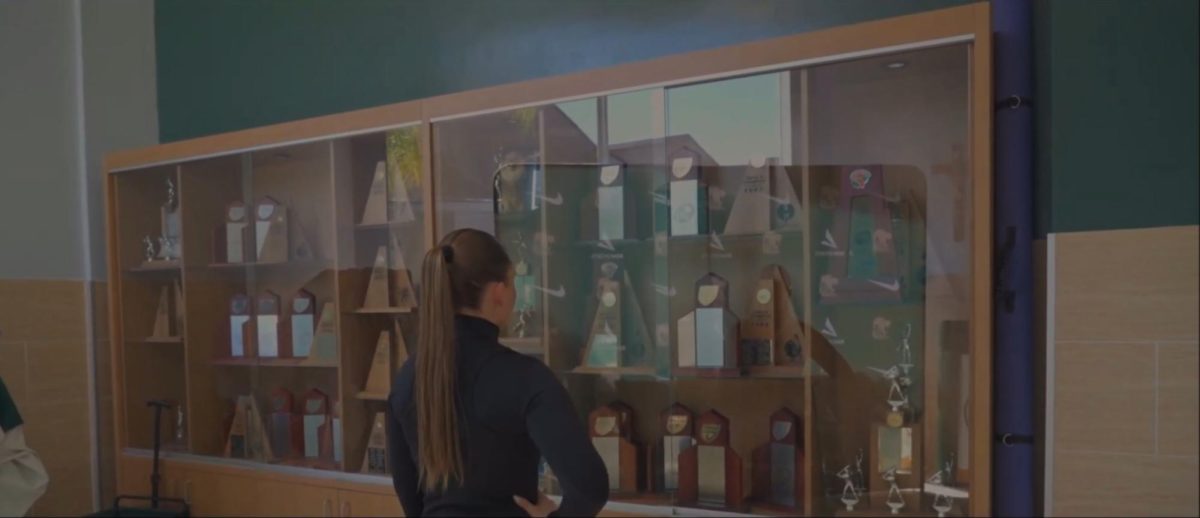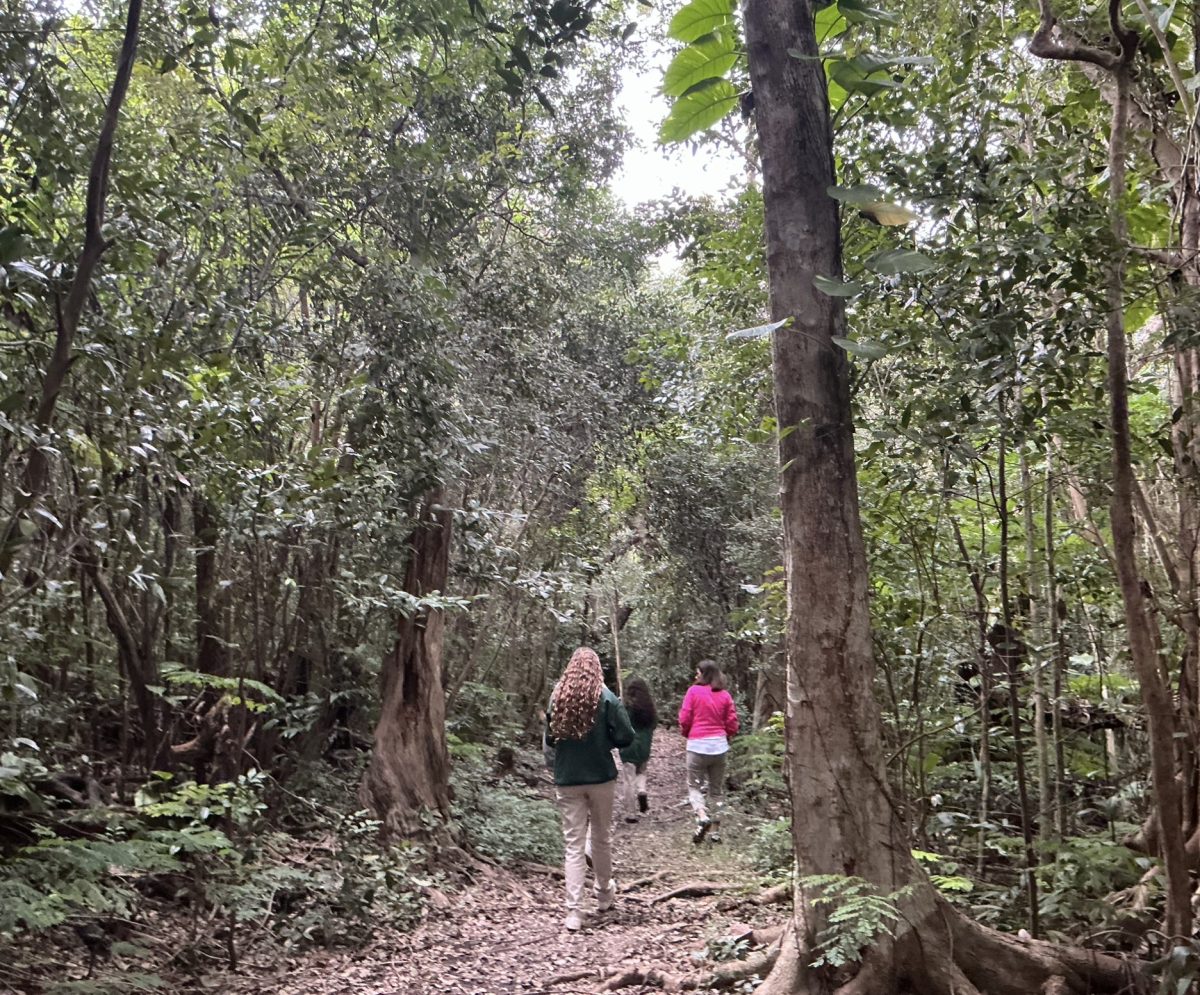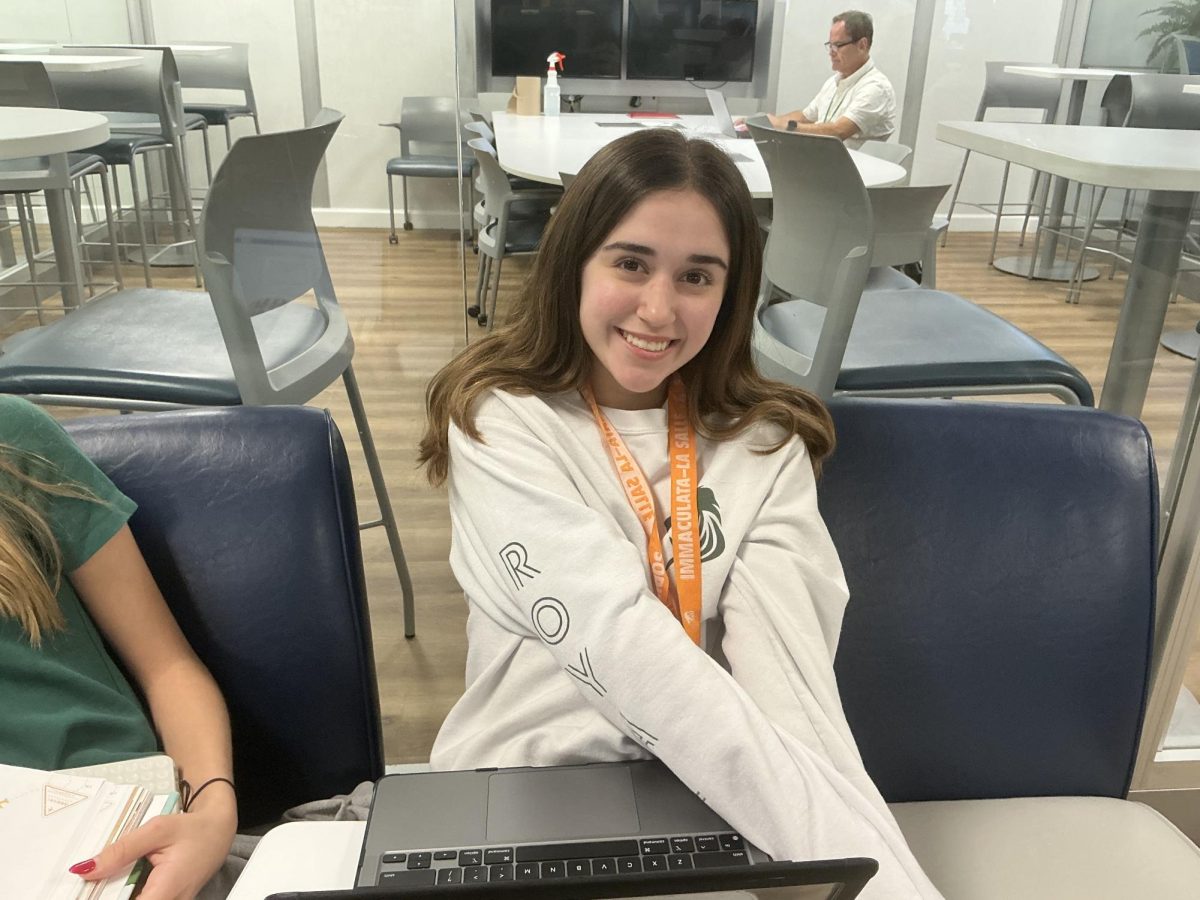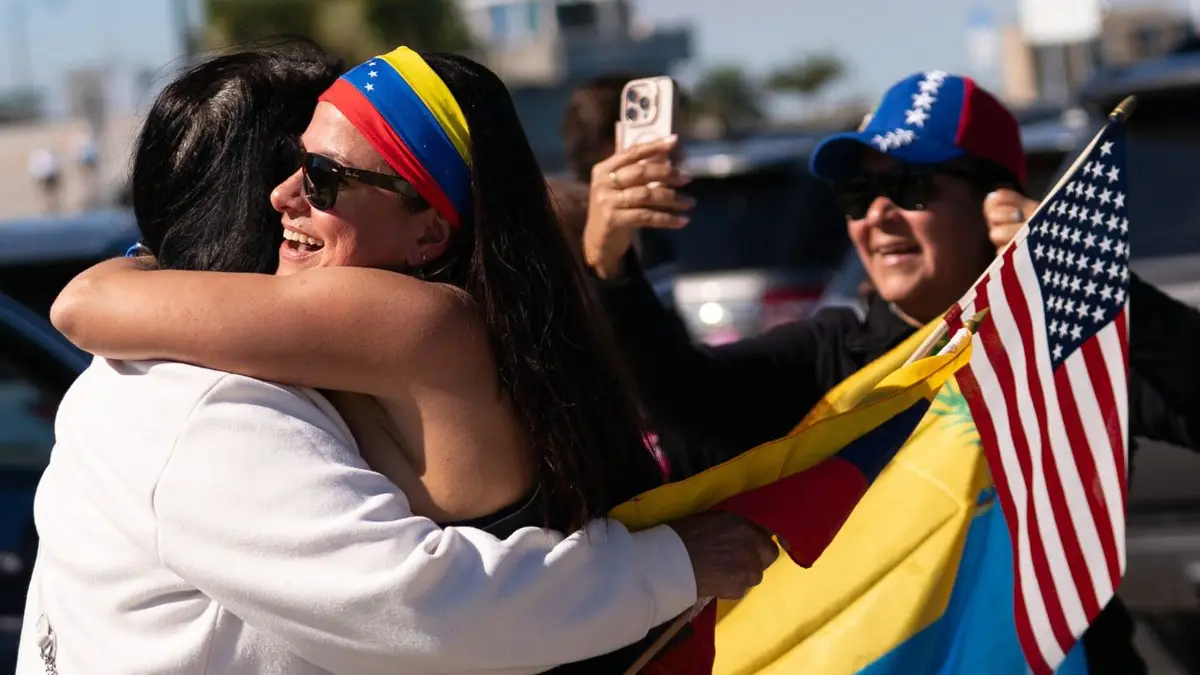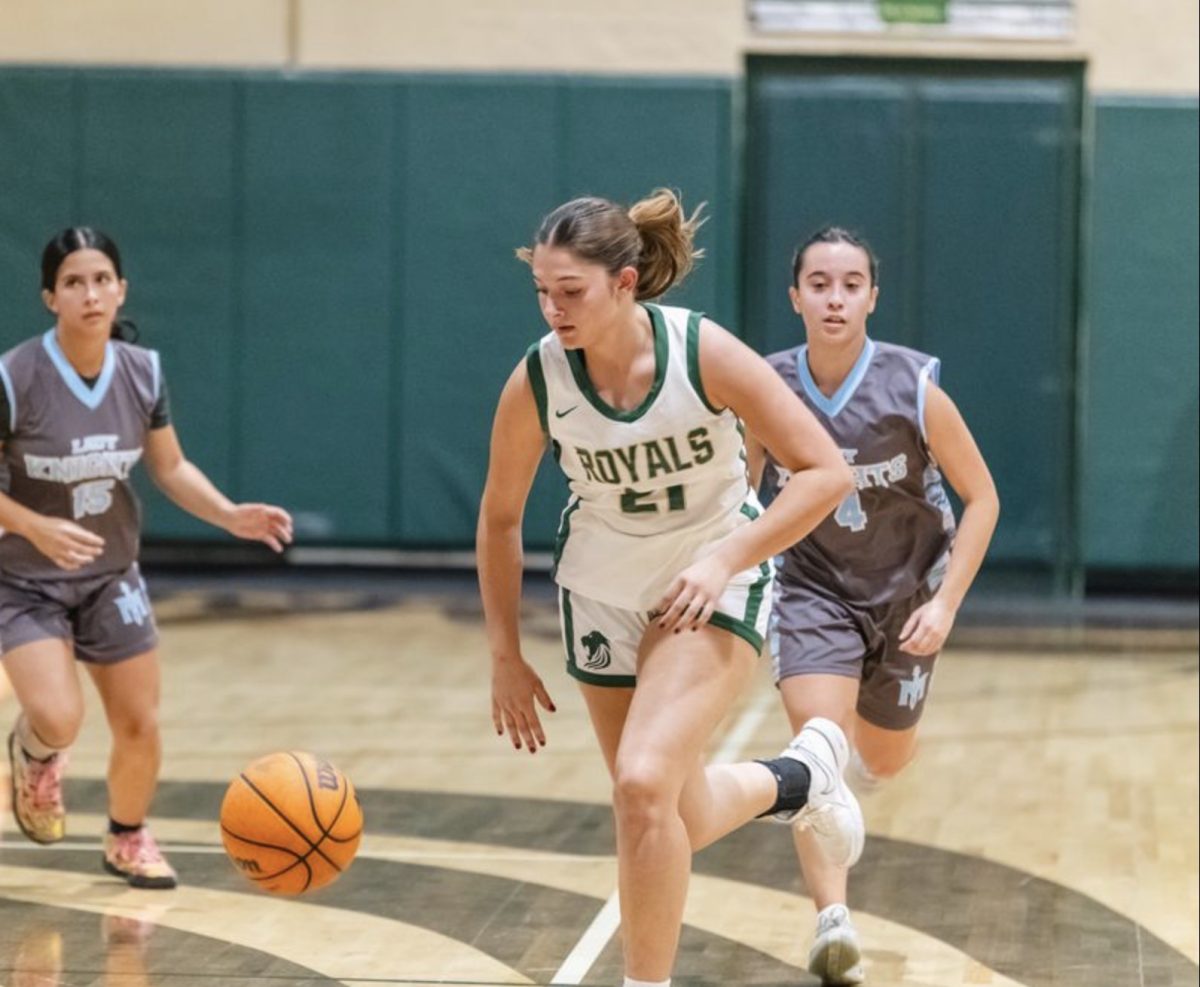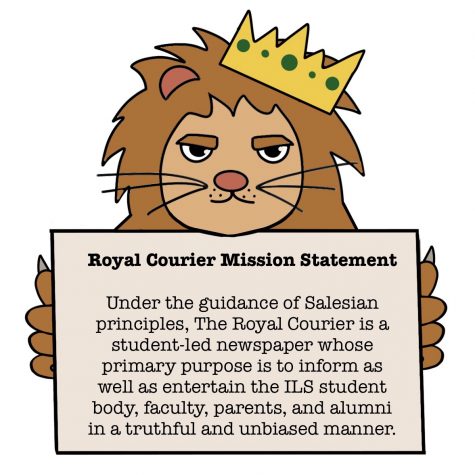ILS Marine Science Students Work to Combat Climate Change
December 15, 2020
In ILS STEAM Program Director and Science Teacher, Dr. Shaw’s Marine Science Honors classes, students are working on a project to combat the negative effects of climate change within the ILS school community.
The classes were split into multiple groups and each group is tackling a different issue that affects climate change. They are coming up with action plans to present to ILS administration and hopefully enact before the end of this school year.
Some of the things students are working to do are reducing beef consumption, palm oil consumption, increasing use of solar energy, and encouraging civil action to be taken in order to advocate for change.
Senior Meghan Swan’s group is working on reducing consumption of palm oil, which is an edible vegetable oil derived from the fruit of oil palms used in many popular snacks and everyday food items, such as Doritos and Nutella, and also in personal care and cosmetics, biofuel and energy, animal feed, pharmaceuticals, and more.
Palm oil is obtained by corporations destroying entire rainforests, which is in turn causing climate change to worsen. The oil itself is found in so many different products that it is nearly impossible to eliminate from daily life.
Swan and her group are trying to change that with their project.
“Our end goal is specifically to inform the school community about the negative effects of palm oil production, and also to give them alternatives to snacks they may buy that contain palm oil so that they can start reducing the number of products they use that contain it,” said Swan.
It definitely won’t be an easy task due to how widespread palm oil usage is, however the first step is educating people about the negative effects and how gravely they could affect the future of the planet and the rest will follow.
“I hope that people will learn the impact that everyday activities they participate in, purchases they make, and food they eat has on the environment, and the ways that they can do their part to help keep the Earth healthy for many years to come,” said Swan.
Senior Lauren Fernandez’s group is working to reduce beef consumption at ILS.
Most people don’t quite realize the scale of the negative effect beef has on climate change, however reducing beef consumption by even a little bit makes a massive difference.
When cows burp or fart, they release methane, which is one of the most potent greenhouse gases, into the atmosphere. The level of greenhouse gas emissions right now is endangering the Earth’s climate.
Reducing beef consumption greatly reduces the amount of methane being released into the atmosphere, and therefore helps prevent negative effects of climate change.
Fernandez’s group is working towards this by pushing for the cafeteria to begin reducing—not eliminating completely—beef consumption.
“The goal isn’t to necessarily make La Salle vegetarian so to say, but to rather inform the school about beef consumption’s impact on the environment and what ILS can do to stop it,” said Fernandez.
Fernandez hopes that her group’s efforts will help people learn more about the topic and ultimately reduce beef consumption in their homes as well.
“The mere fact that people will be informed about beef consumption’s impact on climate change is something that excites me,” said Fernandez. “If people implement changes into their life after learning about this cause, that will be even better!”
Senior Sebastian Giugovaz and his group are taking a bit of a different approach than Swan and Fernandez’s groups. They are working to create policy change in the long-run in support of a more environmentally conscious world.
“For my project, my group and I are working on sparking an interest for people to take action against climate change, specifically by reaching out to government officials and people who can make policy change,” said Giugovaz.
They are working to incite change on a larger scale than simply targeting the ILS community. They want to create a lasting impact on the way this country functions.
“Our end goal is to create a large social media platform to educate the youth in Miami (and hopefully eventually all over the world) about the negative effects climate change is having on the Earth and the importance of doing everything we can to stop it,” said Giugovaz. “We hope to plan climate rallies here in Miami once the coronavirus is no longer a threat.”
By getting a large following and involving the media and local government officials, this group is ready to get the issue of climate change the attention it deserves.
Make sure to be on the lookout for the eco-friendly changes that may be implemented soon at ILS thanks to these motivated activists!


